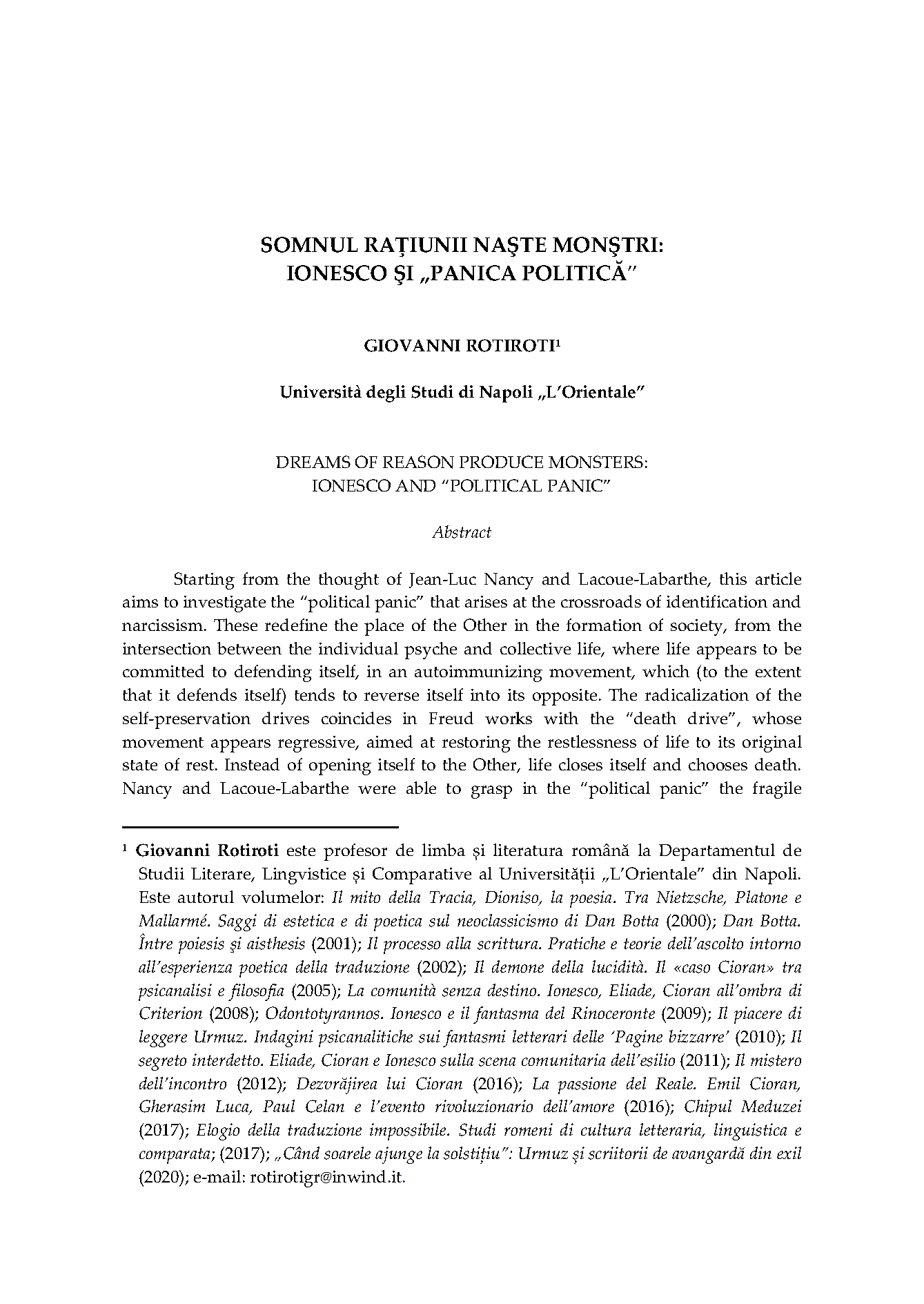SOMNUL RAŢIUNII NAŞTE MONŞTRI: IONESCO ŞI „PANICA POLITICĂ”
DOI:
https://doi.org/10.62229/aubllrlxxi/22/5Cuvinte cheie:
Romanian literature, psychoanalysis, theatre, comparative literature, political philosophyRezumat
Starting from the thought of Jean-Luc Nancy and Lacoue-Labarthe, this article aims to investigate the “political panic” that arises at the crossroads of identification and narcissism. These redefine the place of the Other in the formation of society, from the intersection between the individual psyche and collective life, where life appears to be committed to defending itself, in an autoimmunizing movement, which (to the extent that it defends itself) tends to reverse itself into its opposite. The radicalization of the self-preservation drives coincides in Freud works with the “death drive”, whose
movement appears regressive, aimed at restoring the restlessness of life to its original state of rest. Instead of opening itself to the Other, life closes itself and chooses death. Nancy and Lacoue-Labarthe were able to grasp in the “political panic” the fragile relationship between the “withdrawal of the politician” and the beginning of politics, and this particular aspect of life in common also concerns the play of Ionesco, Rhinocéros. The Romanian writer denounces in France the fascist ideological contagion of a whole generation of writers, between the two wars, highlighting the “death drive”, which moves the coryphes of political totalitarianism in Romania towards the spasmodic competition, fanaticism, cynicism, and, in some cases, towards crime. It is imaginatively cloaked in religious idealism understood as an all- encompassing “spiritual” knowledge, free of stretch marks.




